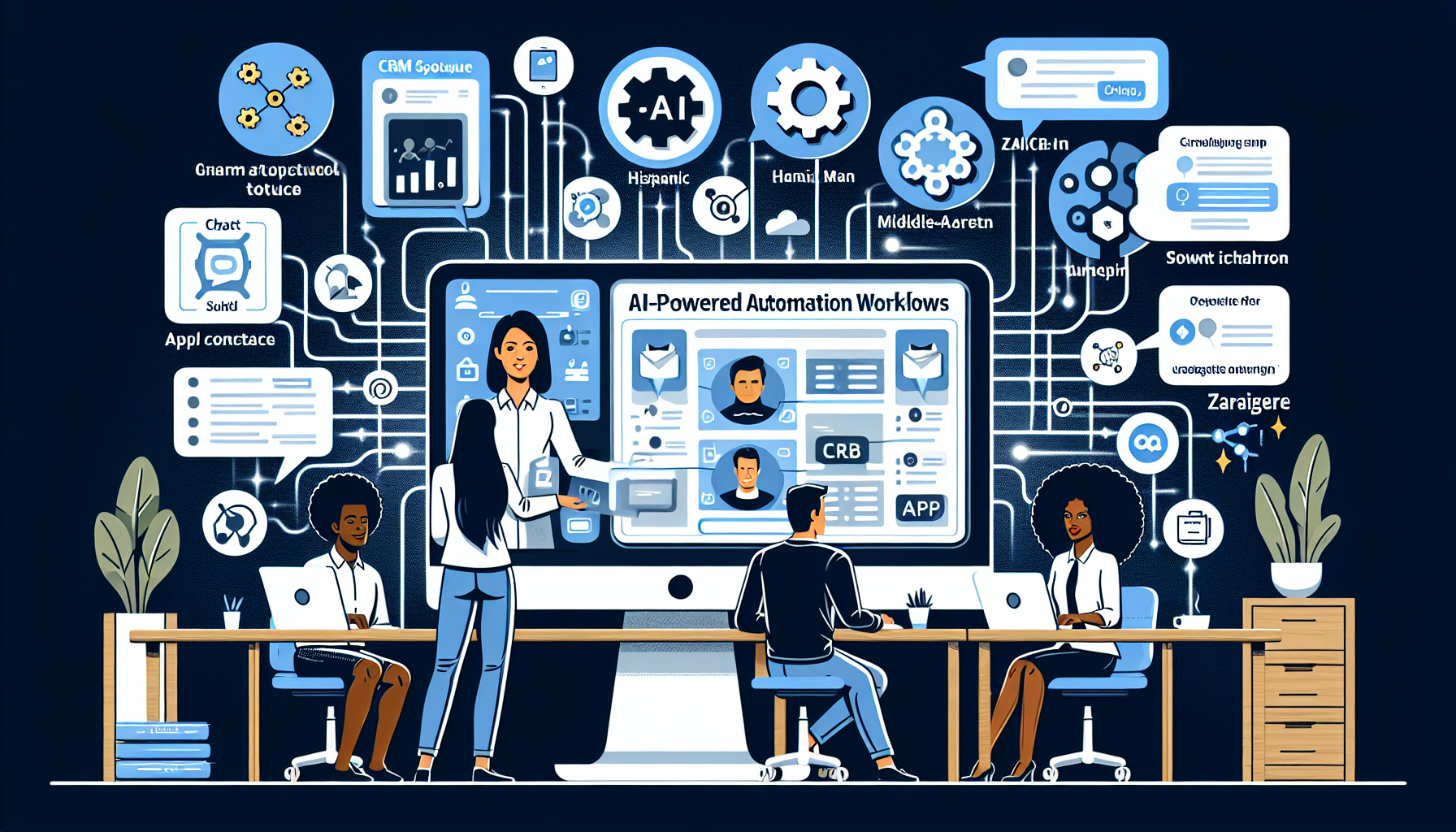Understanding CRM Automation
Customer Relationship Management (CRM) systems are pivotal for businesses aiming to enhance productivity and streamline their operations. They enable firms to better track interactions with prospects and customers, manage sales pipelines, and foster effective communication. However, the real game changer comes with CRM automation, which involves using tools and technologies to automate repetitive tasks, allowing employees to focus on high-value activities.
CRM automation encompasses various functions, including lead management, data entry, follow-up reminders, and reporting. By automating these tasks, businesses not only save time but also minimize errors associated with manual entry and foster a more efficient workflow.
The Importance of CRM Automation
-
Increased Efficiency: CRM automation allows sales and marketing teams to spend less time on administrative tasks. Automation tools can manage email campaigns, update records, and generate reports without human involvement.
-
Enhanced Customer Experience: With CRM automation, businesses can offer timely responses to customer inquiries, ensuring that clients receive the information they need when they need it. Automation tools can send personalized messages based on previous interactions, enhancing customer engagement.
-
Data Accuracy: Manual data entry is often fraught with errors. Automating this process through a CRM system helps ensure that data remains consistent and accurate, enabling better insights and decision-making.
-
Streamlined Sales Processes: Automation can help manage the sales funnel more effectively, guiding leads through every stage until they convert into customers. Tasks like follow-ups can be pre-scheduled to ensure that no potential lead slips through the cracks.
ChatGPT in CRM Automation
ChatGPT, an advanced artificial intelligence model developed by OpenAI, acts as an intelligent assistant that can transform how CRM systems manage customer interactions. Its natural language understanding and generation capabilities enable it to provide conversational support, aiding both customers and sales representatives.
Use Cases of ChatGPT in CRM
-
Customer Support: ChatGPT can handle inbound queries through chatbots on websites or within CRM systems. It can provide instant answers to frequently asked questions, reducing response time and freeing up human agents for more complex issues.
-
Lead Qualification: By interacting with potential leads via chat, ChatGPT can gather essential information and assess interest levels. This pre-qualification step can help sales teams prioritize high-quality leads.
-
Personalized Communication: Utilizing past interactions and customer data, ChatGPT can craft personalized emails and messages for outreach campaigns, making communications feel more tailored and engaging.
-
Training and Onboarding: ChatGPT can assist new employees in learning the CRM system by providing real-time answers to their questions, guiding them through processes, and offering best practices.
Leveraging Zapier for CRM Automation
Zapier has emerged as a powerful automation tool that connects different apps and services, facilitating seamless data transfer between them. It allows users to create ‘Zaps’—automated workflows that trigger actions in one app upon receiving a specific input from another.
Benefits of Using Zapier with CRM
-
Integration Across Platforms: Zapier simplifies the integration of various applications, ensuring that your CRM communicates with email marketing tools, accounting software, and e-commerce platforms, among others. This interconnectedness helps maintain data consistency across systems.
-
Time-Saving Automation: With Zapier, repetitive tasks can be automated effortlessly. For instance, when a new lead fills out a form on your website, Zapier can automatically add that lead to your CRM, subscribe them to your newsletter, and notify your sales team via Slack.
-
Customizable Workflows: Users can design tailored workflows to meet specific business needs. Zapier provides a user-friendly interface making it easy for non-technical users to create automation processes.
-
Real-Time Updates: Zapier continuously monitors app data, enabling real-time updates across platforms. This ensures that your sales and marketing teams always work with up-to-date information.
Combining ChatGPT and Zapier for Enhanced Productivity
By integrating ChatGPT into workflows facilitated by Zapier, businesses can significantly enhance productivity and operational efficiency.
Synergistic Benefits
-
Automated Interaction Management: When a lead interacts with a ChatGPT-powered bot, any information collected can be automatically logged into a CRM through Zapier, ensuring comprehensive tracking of all lead interactions without manual entry.
-
Seamless Follow-Ups: After ChatGPT engages with a lead, Zapier can trigger automated follow-up emails or reminders for sales reps to reach out. This minimizes lapses in communication and helps maintain engagement.
-
Data Enrichment: ChatGPT can collect more than just initial contact details; it can engage leads in conversation to gather insights into their preferences or pain points. Zapier can then push this enriched data into the CRM for future segmentation and targeting.
-
Reporting and Analytics: With ChatGPT handling conversations while Zapier records and compiles relevant metrics, businesses can generate detailed reports that enhance understanding of customer behavior and campaign performance.
Best Practices for Implementing CRM Automation with ChatGPT and Zapier
-
Define Clear Objectives: Establish what you aim to achieve through automation—be it increasing lead generation, improving customer service, or streamlining data management.
-
Choose the Right Tools: Select a CRM that integrates smoothly with both ChatGPT and Zapier, ensuring that data flows effortlessly across platforms.
-
Train Your Team: Educate your team about using ChatGPT and Zapier. Training ensures that all employees are proficient in leveraging these technologies to maximize productivity.
-
Test and Iterate: Begin with pilot implementations of your automations, monitoring their performance and gathering feedback before a full roll-out.
-
Regular Optimization: Continuously assess your automated workflows, ensuring they remain efficient and aligned with evolving business needs. Utilize analytics provided by CRM and Zapier insights for informed decision-making.
Conclusion
By harnessing the power of CRM automation through tools like ChatGPT and Zapier, businesses can significantly boost productivity, enhance the customer experience, and streamline operations. Investing in these technologies not only fosters a more efficient work environment but also prepares companies to meet the demands of an increasingly competitive landscape. Implementing these solutions strategically can yield meaningful dividends in the form of time savings, improved data management, and optimized customer relationships.


